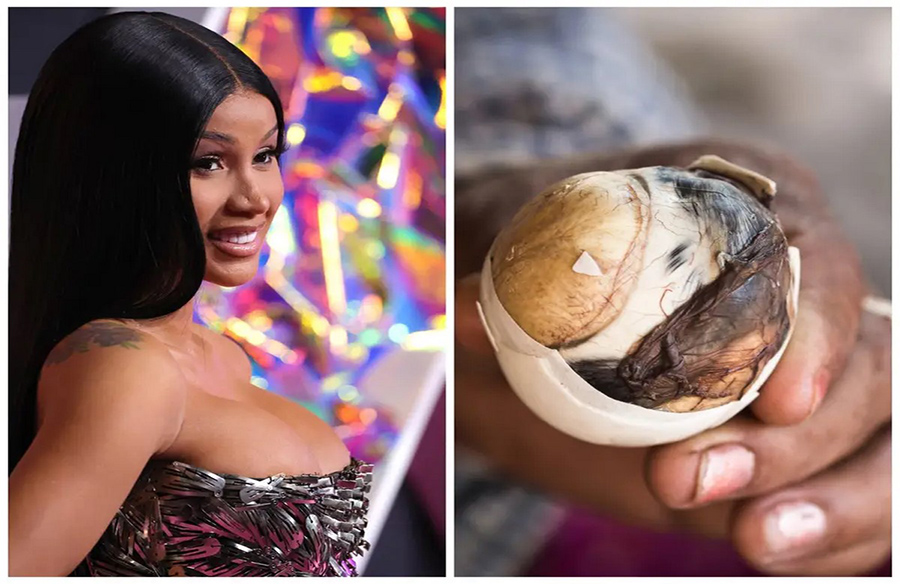Cardi B’s recent TikTok video, where she tries Balut eggs for the first time, has sparked discussion about respectful engagement with Asian cuisine stereotypes, contrasting with past instances of cultural insensitivity.
Balut Eggs: A Filipino Delicacy
Balut eggs, a delicacy popular in Asia, particularly in the Philippines, are fertilized duck eggs that are boiled and consumed with salt and lemon. Cardi B’s attempt to taste this unique dish has drawn attention to cultural perceptions and stereotypes surrounding Asian food.
Cardi B’s TikTok Experience
In the TikTok video, Cardi B, adorned in a distinctive burnt-orange updo and striking blue eyeshadow, sampled Balut eggs with a mixture of curiosity and trepidation. Despite her initial enthusiasm, her reaction to the taste was less than favorable, prompting her to express her discomfort with the dish.
A Respectful Response
What distinguishes Cardi B’s reaction from past incidents of cultural insensitivity is her respectful approach. Rather than disparaging the dish or labeling it as disgusting, she simply acknowledged that Balut eggs were not to her taste. Her willingness to try the dish and her openness to revisiting it under different circumstances garnered praise from TikTok commenters.
Contrasting Reactions
The contrast between Cardi B’s response and previous instances of cultural insensitivity, such as music producer Benny Blanco’s reaction to Filipino fast-food chain Jollibee, highlights the importance of respectful engagement with diverse culinary traditions. Cardi B’s acknowledgment that the dish may not be for her without denigrating it resonated positively with many viewers.
Addressing Stereotypes
The discussion sparked by Cardi B’s TikTok video reflects broader issues surrounding stereotypes and cultural representation in the media. Asian cuisine has often been subjected to negative portrayals and stereotypes, perpetuating harmful narratives about cultural foods and practices.
Moving Towards Respectful Engagement
As conversations about cultural sensitivity continue, Cardi B’s approach serves as a reminder of the importance of respectful engagement with diverse cuisines and traditions. By refraining from derogatory comments and expressing a willingness to engage with unfamiliar foods, individuals can contribute to fostering a more inclusive and respectful cultural landscape.
In conclusion, Cardi B’s TikTok video offers a valuable lesson in cultural sensitivity and respectful engagement with diverse culinary traditions. As discussions surrounding stereotypes in the media persist, her approach sets a positive example for acknowledging and appreciating cultural diversity.




Leave a Reply